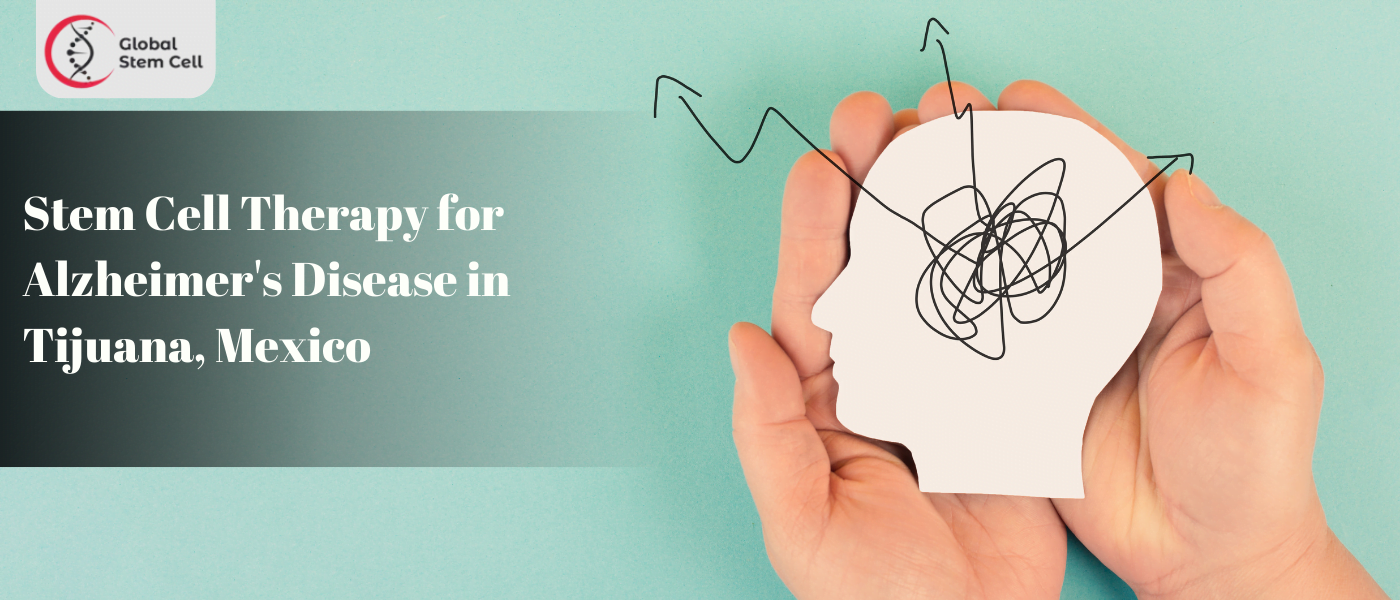
Overview About Alzheimer’s Disease
Table of Content
Alzheimer’s disease is a progressive neurodegenerative disorder that primarily affects the brain, causing a gradual decline in memory, thinking skills, and overall cognitive function. It is the most common form of dementia, accounting for about 60-80% of cases. Alzheimer’s disease usually develops slowly and worsens over time, ultimately leading to severe impairment in daily functioning and, in advanced stages, the loss of ability to carry out basic tasks.
Here is a detailed overview of Alzheimer’s disease, covering its causes, risk factors, symptoms, diagnosis, treatment, and ongoing research:
- Causes: The exact cause of Alzheimer’s disease is still not fully understood, but it is believed to result from a combination of genetic, environmental, and lifestyle factors. The primary characteristic of Alzheimer’s is the accumulation of abnormal protein deposits in the brain, known as amyloid plaques and tau tangles, which disrupt the normal functioning of brain cells and eventually lead to their death.
- Risk Factors: Several factors increase the risk of developing Alzheimer’s disease. Age is the most significant risk factor, with the majority of cases occurring in individuals over the age of 65. Other factors include a family history of the disease, certain genetic mutations, having Down syndrome, previous head injuries, cardiovascular conditions (e.g., high blood pressure, high cholesterol, diabetes), and lifestyle factors such as smoking, obesity, and lack of physical and mental activity.
- Symptoms: The early symptoms of Alzheimer’s disease are often mild and may include memory lapses, difficulty finding words, trouble with problem-solving, confusion, and mood or personality changes. As the disease progresses, individuals may experience more severe memory loss, disorientation, language problems, impaired judgment, personality changes, difficulty performing familiar tasks, and withdrawal from social activities.
- Diagnosis: Currently, there is no definitive test for diagnosing Alzheimer’s disease while the individual is alive. Diagnosis is typically based on a comprehensive evaluation of medical history, neurological exams, cognitive tests, and assessments of functional abilities. Advanced brain imaging techniques, such as MRI and PET scans, may also be used to rule out other causes of cognitive decline and to detect changes in the brain associated with Alzheimer’s.
- Treatment: Although there is no cure for Alzheimer’s disease, there are treatment options available that can help manage the symptoms and improve the quality of life for affected individuals. Stem cell treatment holds promising potential as a therapeutic approach for Alzheimer’s disease. Stem cells have the ability to differentiate into various cell types, including neurons, and can potentially replace damaged or lost brain cells in individuals with Alzheimer’s. These transplanted stem cells can also secrete growth factors and anti-inflammatory substances that promote the survival and function of existing neurons.
Cost of Stem Cell Therapy for Alzheimer Diseases in Mexico
The average Cost of Stem Cell Therapy for Alzheimer in Mexico starts from $10,000. The final price is determined after an evaluation and analysis of laboratory reports.
| Procedure | Country | Cost |
| Stem Cell for Alzheimer | Mexico | $10,000 |
| Stem Cell for Alzheimer | USA | $20,000 |
| Stem Cell for Alzheimer | UK | $31,000 |
Note: The cost of care depends on the complexity and requirements for your patient. For more information, contact a customer representative at any location!
Benefits of Stem Cell Treatment for Alzheimer’s Disease
Stem cell treatment for Alzheimer’s disease offers several potential benefits that make it an exciting area of research and hold promise for future therapeutic interventions. Some of the key benefits include:
- Neuroregeneration: Stem cells have the unique ability to differentiate into various types of cells, including neurons. By transplanting stem cells into the brain, it is possible to replace damaged or lost neurons, promoting neuroregeneration and potentially improving cognitive function in individuals with Alzheimer’s disease.
- Anti-Inflammatory Effects: Stem cells can secrete anti-inflammatory substances and growth factors that have neuroprotective properties. This can help reduce inflammation in the brain, which is a characteristic feature of Alzheimer’s disease. By dampening inflammation, stem cells may help preserve existing neurons and improve the overall brain environment.
- Trophic Support: Stem cells secrete trophic factors, which are substances that support the survival and function of neurons. These factors can enhance the growth, maintenance, and connectivity of neurons, potentially leading to improved neuronal health and better cognitive outcomes in individuals with Alzheimer’s.
- Disease Modification: Stem cell therapy has the potential to modify the course of Alzheimer’s disease by addressing underlying pathological processes. For example, stem cells can target and clear amyloid plaques, which are abnormal protein deposits that accumulate in the brains of Alzheimer’s patients. This targeted approach may slow down disease progression and preserve cognitive function.
- Minimal Invasiveness: Stem cell treatment for Alzheimer’s can be minimally invasive compared to traditional surgical interventions. Transplanting stem cells into the brain can be achieved through techniques such as intracerebral injections or intranasal delivery, reducing the need for extensive surgeries and associated risks.
Best Stem Cell Centers in Mexico
- MexStemCells Clinic
- Stem Health Clinic
- Sportmed Centro Medico
- Dr. Omer Gonzalez Clinic
- Cellular Hope Institute
Why Choose Stem Cell Therapy for Alzheimer’s Disease in Mexico?
Mexico is a country with high quality medical care, which also happens to have an excellent cost-to-quality ratio. The aging population in this process means that many patients are seeking stem cell treatments according one trial; they saw improvement within 6 months and other therapies typically involve long recovery times.
These days, it seems like everyone knows about how great things can get when you go abroad for your medical needs and there’s a good reason! With strict ethical standards combined with quick access specialists Mexico doctors make this land attractive as a destination spot on earth if we’re talking luxury hospital stays or outpatient visits.
Healthcare in Mexico is known to have high standards and provide quality care by knowledgeable medical professionals who have gone through extensive training so they can keep up with advancements within their field.
Frequently Asked Questions (FAQs)
Here you can find information about Frequently Asked Questions for Stem Cell Therapy for Alzheimer in Mexico:
What is the difference between Alzheimer’s disease and dementia?
Dementia is an umbrella term that refers to a set of symptoms affecting cognitive abilities, memory, thinking, and behavior. Alzheimer’s disease is the most common cause of dementia, accounting for around 60-80% of cases. Other types of dementia include vascular dementia, Lewy body dementia, frontotemporal dementia, and mixed dementia. Alzheimer’s disease specifically refers to the degenerative brain changes and the progressive decline in memory and cognitive function associated with the accumulation of plaques and tangles in the brain.
Can Alzheimer’s disease be prevented?
While there is no surefire way to prevent Alzheimer’s disease, certain lifestyle choices and risk reduction strategies may help lower the risk or delay its onset. These include:
- Regular physical exercise and maintaining a healthy weight
- Following a balanced diet, such as the Mediterranean or DASH (Dietary Approaches to Stop Hypertension) diet
- Engaging in mentally stimulating activities, such as puzzles, reading, or learning new skills
- Managing chronic conditions, such as diabetes, high blood pressure, and cholesterol
- Maintaining social connections and staying socially active
- Avoiding smoking and excessive alcohol consumption
Is there a cure for Alzheimer’s disease?
As of now, there is no cure for Alzheimer’s disease. Available treatments aim to manage symptoms, slow down cognitive decline, and improve quality of life. Medications, such as cholinesterase inhibitors (e.g., donepezil, rivastigmine) and memantine, may be prescribed to help with memory, thinking, and behavior. However, these treatments do not stop or reverse the progression of the disease. Various ongoing research efforts focus on developing disease-modifying treatments and exploring new therapeutic avenues, but more research is needed to find a cure for Alzheimer’s disease.
How long can a person live with Alzheimer’s disease?
The progression and duration of Alzheimer’s disease can vary significantly from person to person. On average, individuals with Alzheimer’s disease live between 4 to 8 years after diagnosis, although some may live for up to 20 years. The rate of progression and life expectancy can be influenced by various factors, including the individual’s overall health, age at diagnosis, presence of other medical conditions, and lifestyle.
Start Your Journey for Stem Cell Therapy for Alzheimer in Mexico!
What is Stem Cell Therapy for Alzheimer’s? It’s a treatment that can change your life. You will feel improvement right away after treatments from certified specialists who have years of expertise fighting this condition! For more information, click contact us button below:






